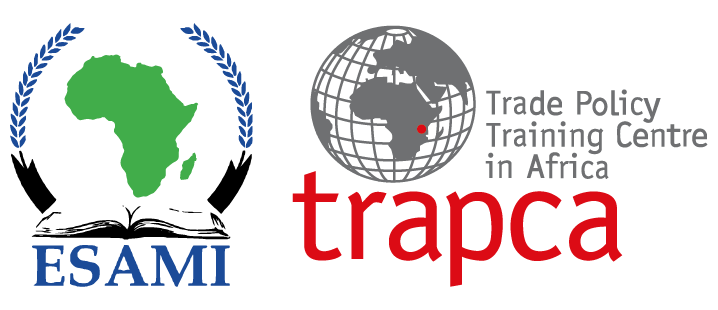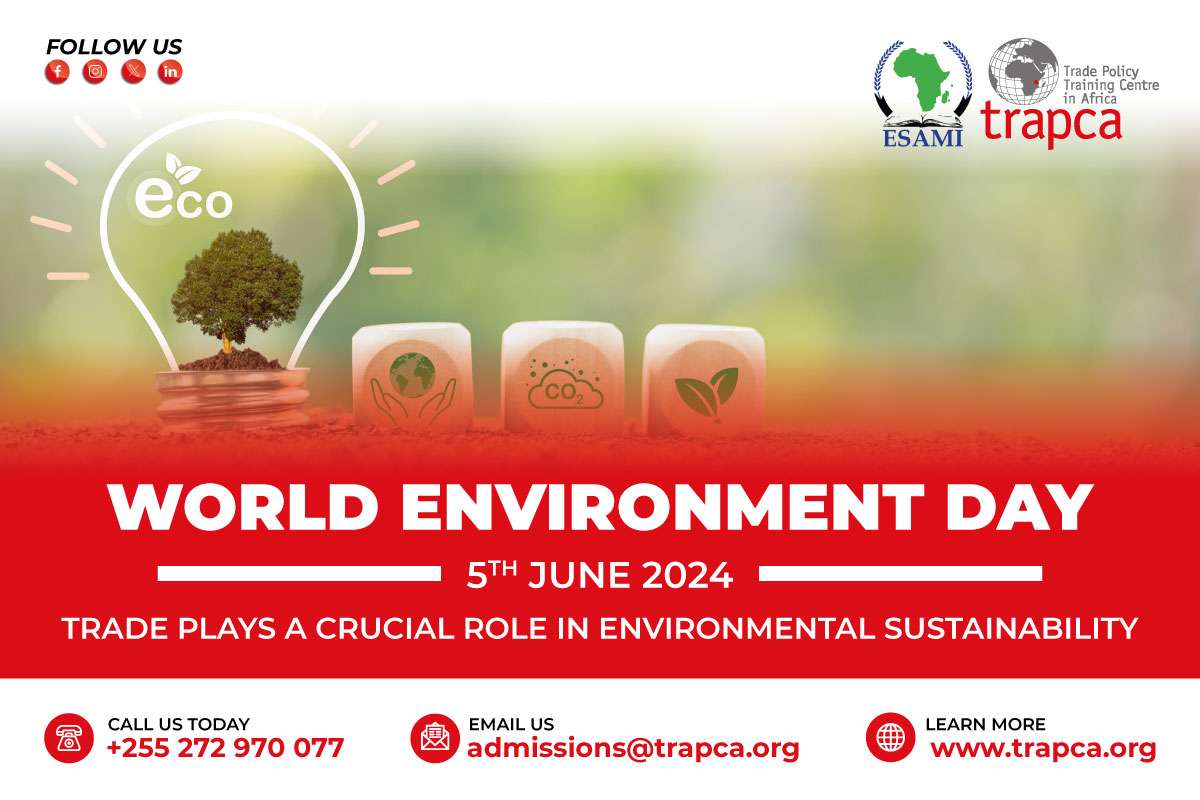Arusha, Tanzania, June 5th, 2024 – In commemoration of World Environment Day, ESAMI-trapca underscores the pivotal role that trade plays in promoting environmental conservation and sustainability. Trade, often viewed solely through an economic lens, is a powerful tool for global environmental protection. It facilitates the cross-border exchange of eco-friendly technologies, products, and services, accelerating the adoption of sustainable solutions worldwide and making every participant a crucial part of this global movement.
Trade agreements and standards can be strategically designed to incentivise sustainable production practices. By mandating adherence to environmental regulations and certifications, these agreements promote responsible manufacturing, international trade and consumption. Furthermore, trade policies can level the playing field for sustainable producers through mechanisms like carbon pricing and border adjustments. These measures discourage the import of goods produced with high environmental costs, favouring those with a smaller ecological footprint.
The exchange of secondary materials and waste products facilitated by trade also contributes to a circular economy, a system that is not only environmentally beneficial but also economically promising. By promoting reuse and recycling, trade helps reduce resource depletion and waste generation, creating significant economic opportunities in repair, refurbishment, and remanufacturing sectors, fostering a sense of hope and optimism for a sustainable future.
We also emphasise the importance of aligning trade policies with environmental objectives and sustainable development goals. This includes the implementation and enforcement of robust environmental regulations and standards, as well as investments in green infrastructure and sustainable supply chains.
One of the critical roles of trade facilitation is to foster transparency and traceability. This enhances accountability and promotes ethical practices in trade, ensuring that environmental considerations are integrated into every stage of the value and supply chain. ESAMI-trapca also highlights the need to support capacity building and technology transfer in developing countries, enabling them to participate effectively in sustainable trade practices through such courses as “Leveraging Green Trade Policies for Sustainability and Climate Adaptation and Mitigation“. By working together, nations can leverage trade as a powerful instrument for environmental conservation and achieve a more sustainable future for all.

